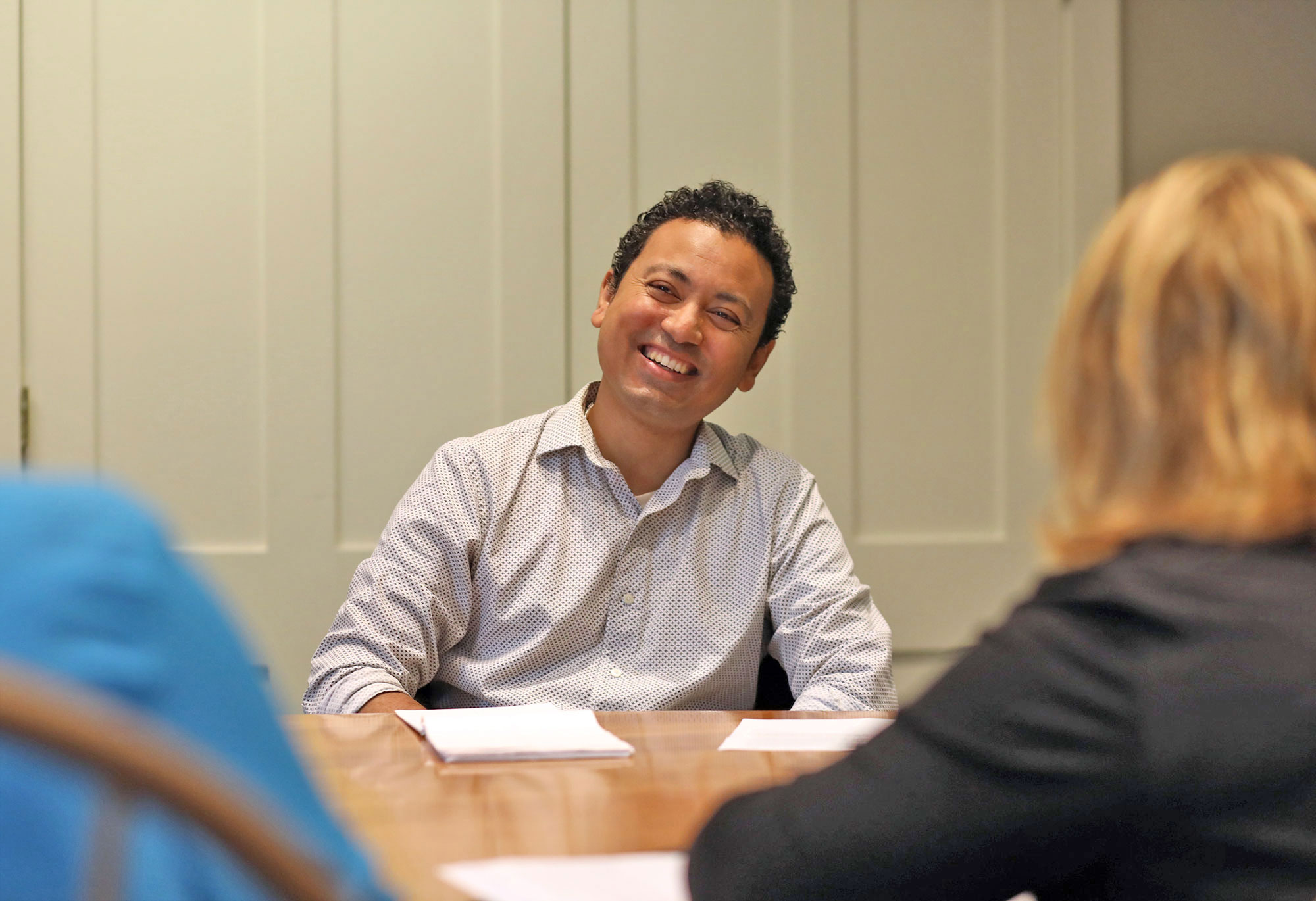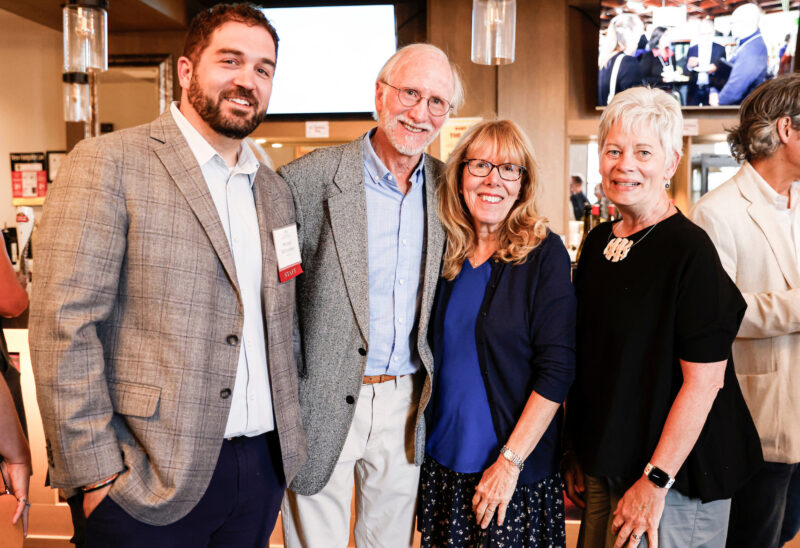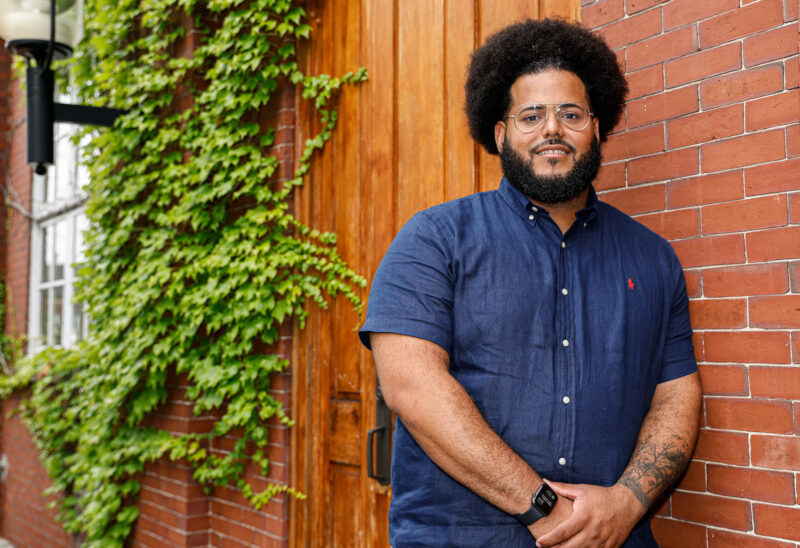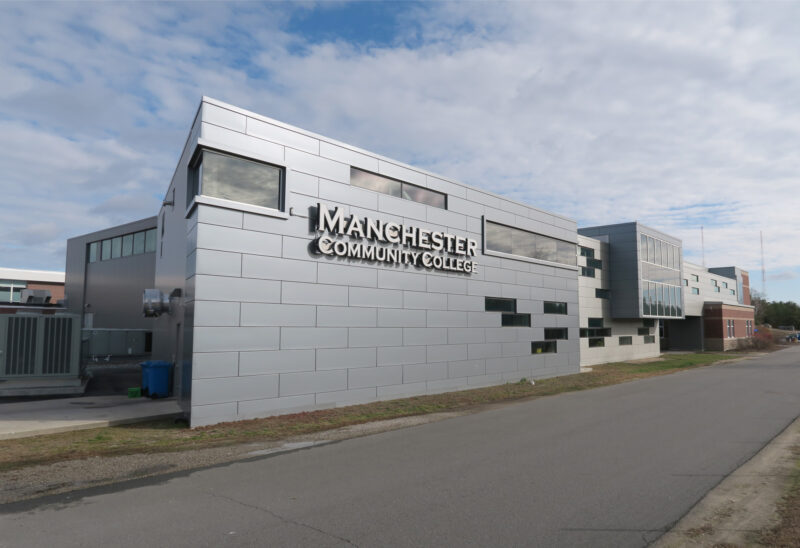Sandeep Bikram Shah has joined the New Hampshire Charitable Foundation as senior program officer for the Monadnock region, charged with managing the Foundation’s grantmaking and working with donors and nonprofits in the region.
Sandeep came to the Foundation from the New Hampshire Department of Education, where he worked to expand employment opportunities for people with disabilities. He coordinated clinical and community based research projects in the Department of Family Medicine and Community Health at the University of Pennsylvania — where he also received Master’s degrees in public health and in social work. He worked in the banking industry in California, for a nonprofit serving refugees in Philadelphia, and spent some time at the Philadelphia Foundation, doing an internship in both philanthropic services and grantmaking. He has lived in Nepal, Australia and the U.S., and speaks Nepali, Hindi and English. Sandeep lives with his family in Derry.
You’re getting to know the Monadnock Region…
Yes. Because of the Foundation’s history, the groundwork is already done. For me right now the priority is to connect with the nonprofit partners and other stakeholders, community leaders, who can help me learn. And the staff here have so much knowledge about the region. Right now I am just listening. Meeting people and listening and trying to absorb as much information as possible.
What is an iconic Monadnock image that has struck you?
Keene is very vibrant and Peterborough is so beautiful with the mountains and the river…
But it’s really people. No matter where I have gone, I have made eye contact with people, and when I smile, they smile back. I like to make eye contact and say ‘how are you doing?’ When I moved to New Hampshire, and especially going to the Keene and Peterborough area, it kind of reminded me: people like to smile here. People like to make eye contact here. People are welcoming. The folks that I have reached out to are nothing but supportive and willing to share their own experiences, so that has helped me immensely with the new role. With Keene and Peterborough, that has been a highlight. As I explore the region more and visit more towns, I have a feeling I will have similar experiences, and I am really looking forward to that.
You have done so many different things in different places — how did that path lead to community philanthropy?
A community foundation is one place I can use all of my experience and education and also be able to make a large impact in communities.
Your work in banking included working with low-income families and immigrants and refugees…
I really felt obligated to reach out to especially low-income families and educate them on how to budget and how to be more strategic about using the limited resources they had…I was working with high-worth clients but also had clients living paycheck-to-paycheck and they would take out things like direct deposit advances or cash from credit cards, so they were paying fees and never getting off the cycle of poverty. I felt I had a responsibility to educate them on how to be careful with their finances. So I started offering financial literacy workshops. And I also worked with the immigrant and refugee population in the San Francisco Bay area, educating them on how to use online banking, ATM machines, translation services within the banking world. The more I worked closely with them, the more I understood the complexity of the number of challenges they face on a daily basis.
And that is the work that I did with a nonprofit in Philadelphia, educating refugees and immigrants on things like how to be mindful of managing accounts and the importance of filing taxes and how to be more careful about not sharing your personal information. Also working with street vendors in West Philadelphia, I was able to offer technical support to many of vendors on how to be smart with their finances and be creative with their business. My banking background really helped me educate folks who needed the support most.
Your wife also works at a nonprofit?
She works at the Institute for Professional Practices, helping individuals with disabilities. She manages residential and day program services and provides comprehensive services to individuals by preparing and executing individualized service plans to help meet their objectives.
You did similar work with the New Hampshire Department of Education?
My role was to educate businesses on why they should hire individuals with disabilities. It was always from a strength perspective — it was always about focusing on what kind of skill set this individual has and what kind of need this business had and whether it was a good match or not. So addressing a lot of stigmas around disabilities and a lot of fears and finding appropriate jobs. We all know businesses are currently struggling to find employees in New Hampshire but if we look into unemployment rate among individuals with disabilities, it is still high. I think this is a great opportunity for employers to be more creative with their approach and reach out to this untapped market of people who are fully capable of working.
And you studied in Australia?
I was in Melbourne, Australia for about 2-1/2 years in college. It was some of the best years of my life. It was the first time I was away from my home, which is Nepal. I understood the meaning of hard work and learned how to save and did a whole bunch of different odd jobs. And those experiences helped me when I moved to the United States. The culture shock was not as big here in the U.S. compared to when I moved to Australia. It was a huge adjustment for me. I used to speak English back home also, but the Australian accent was something to get used to.
And then you continued your education in the States…
When I first moved to the United States, I went to a community college in the San Francisco Bay area, my college counselor looked at my transcript and asked me ‘what language do they speak in Australia?’ I was very disappointed. I took my stuff and left. And then, fast forward a couple years, I was working in the banking industry and I wanted to learn more about American history, how America was founded. So I started taking history classes at Berkeley City College and I really got interested in African-American history. So that started my education journey again. I started taking evening classes after my work, and I got my associate degree from Berkeley City College and decided to apply to UC-Berkeley and I was accepted there. I decided on social welfare as a major. I realized how important health is to any social work issue and that is why I decided to do both public health and social work in graduate school. Also my work with low- income families and immigrant populations gave me so much exposure to their daily challenges, I wanted to learn how I could be of more help.
I like to ask everyone this, because we all choose this place, or continue to choose it if we grew up here: What is your “why New Hampshire” story?
My wife’s side of the family is here in New Hampshire and my side is in California…New Hampshire is such a beautiful place and it feels like there is space to breathe here. Every time we came here to visit, we would see the different seasons…And it was always welcoming. You never felt like you were “new” in New Hampshire. People were very welcoming. Our decision to move here was not hard.
What is your favorite place in New Hampshire to hang out?
We are still exploring. As tourists, we used to go toward the White Mountain region, because there is so much to explore there, but now I am trying to spend as much time as possible in the Monadnock region. Climbing Mt. Monadnock is on my to-do list, but I am waiting for fall. It’s such a beautiful place, no matter where you go you feel like you are vacationing there. I was driving back from a regional advisory board meeting in Keene and it was sunset and I saw this full rainbow and I stopped just before I got to Hillsboro, and parked on the side of the road and just stopped there for 10 minutes. I wouldn’t get that in Philadelphia. I feel like there is so much to explore here.
We are also food lovers, and we make sure we eat all different foods at all different places that we visit.
What’s a book that you love and that you find yourself recommending, or giving as a gift?
“Siddhartha” from Hermann Hesse. It is a book about a common man named Siddhartha and his journey of self-discovery. I have read that book many times and every time I learn something new about life. I think we all are in a journey to self-discovery as life happens and as it moves us around. We are constantly exploring — for happiness, success and prosperity. Just like the main character in the book, I left home young and the journey has not stopped yet.













![Rev. Heidi Carrington Heath joined Seacoast Outright. [Photo by Cheryl Senter]](https://www.nhcf.org/wp-content/uploads/2024/05/Heidi-Carrington-Thumbnail-800x548.jpg)
![Dr. Jennie Hennigar treats a patient at the Tamworth Dental Center [Photo by Cheryl Senter]](https://www.nhcf.org/wp-content/uploads/2024/05/TCCAP-Hero-800x548.jpg)

